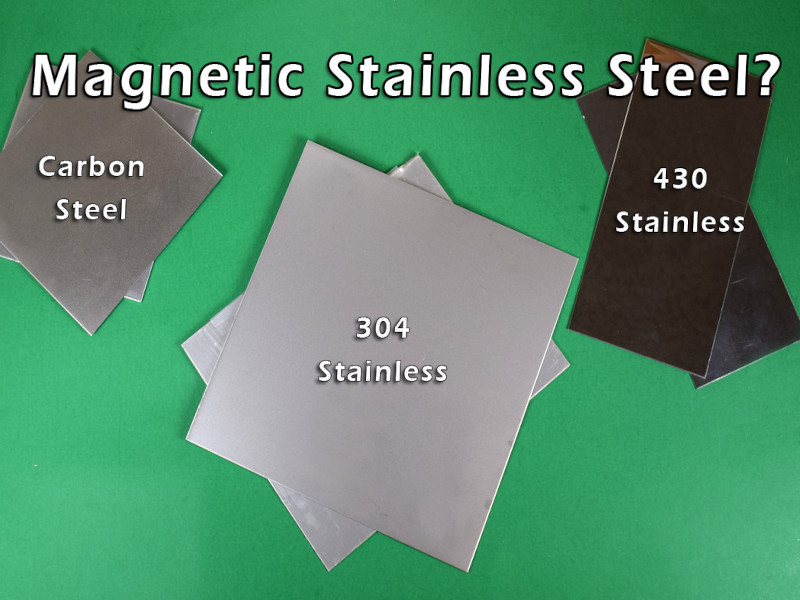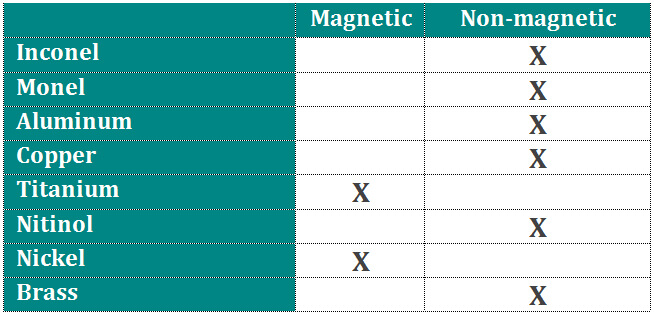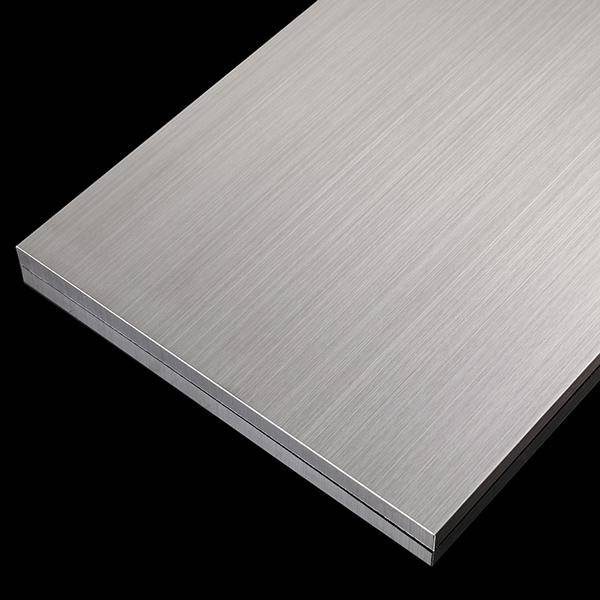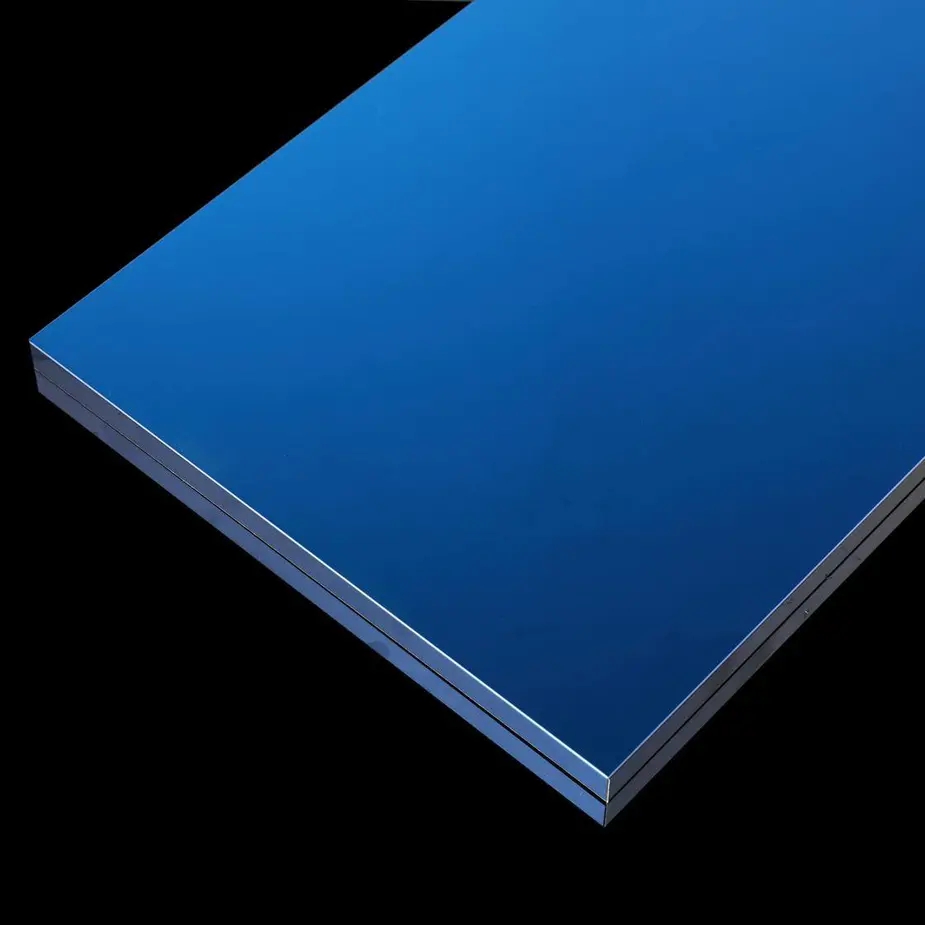Stainless steel is a versatile and widely used material known for its corrosion resistance, durability, and aesthetic appeal. However, one aspect that often raises questions is its magnetic properties. Is stainless steel magnetic or non-magnetic? The answer is not as straightforward as it may seem, as the magnetic behavior of stainless steel depends on several factors, including its composition and crystalline structure. In this comprehensive guide, we'll explore the intricacies of stainless steel and magnetism, addressing common queries and concerns from readers interested in stainless steel surface processing techniques and applications.
Understanding Magnetism in Materials
Before delving into the specifics of stainless steel, it's essential to understand the fundamental principles of magnetism in materials. Magnetism is a property that arises from the behavior of electrons and their spin. In ferromagnetic materials, such as iron, the electron spins are aligned in the same direction, resulting in a strong magnetic field. Non-ferromagnetic materials, on the other hand, have electron spins that are randomly oriented, leading to a negligible or no magnetic field.

Types of Stainless Steel and Their Magnetic Properties
Stainless steel is an alloy composed primarily of iron, chromium, and other elements such as nickel, molybdenum, and manganese. The specific composition and crystalline structure of the alloy determine its magnetic properties. There are several types of stainless steel, each with varying degrees of magnetism:
1. Austenitic Stainless Steel
This is the most common type of stainless steel, including grades such as 304 and 316. Austenitic stainless steels are generally non-magnetic due to their face-centered cubic (FCC) crystalline structure, which prevents the alignment of electron spins. However, it's important to note that these steels can become slightly magnetic after undergoing cold working processes like bending, rolling, or forming, as these processes can induce the formation of a small amount of ferromagnetic martensite phase.
2. Ferritic Stainless Steel
Grades like 409 and 430 fall under this category. Ferritic stainless steels are magnetic due to their body-centered cubic (BCC) crystalline structure, which allows for the alignment of electron spins, similar to carbon steel. These steels contain a higher percentage of chromium and lower amounts of nickel compared to austenitic grades.
3. Martensitic Stainless Steel
This type of stainless steel, including grades like 410 and 440C, is also magnetic due to its BCC crystalline structure. Martensitic stainless steels are known for their high strength and hardness, making them suitable for applications such as cutting tools and bearings.
4. Duplex Stainless Steel
As the name suggests, duplex stainless steels have a mixed microstructure consisting of both austenitic and ferritic phases. This combination results in magnetic properties that are intermediate between austenitic and ferritic stainless steels. Grades like 2205 and 2507 fall into this category.

Factors Influencing Magnetism in Stainless Steel
While the composition and crystalline structure play a significant role in determining the magnetic properties of stainless steel, there are other factors that can influence its magnetism:
- Cold Working: As mentioned earlier, austenitic stainless steels can become slightly magnetic after undergoing cold working processes like bending, rolling, or forming. These processes can induce the formation of a small amount of ferromagnetic martensite phase, leading to a slight magnetic response.
- Heat Treatment: Certain heat treatment processes can alter the crystalline structure of stainless steel, affecting its magnetic properties. For example, austenitic stainless steels can become magnetic if subjected to high temperatures, as the austenite phase can transform into ferromagnetic phases like ferrite or martensite.
- Impurities and Inclusions: The presence of impurities or non-metallic inclusions in stainless steel can also influence its magnetic behavior. These impurities can act as nucleation sites for the formation of ferromagnetic phases, leading to localized magnetic regions within the material.
Practical Implications and Applications
Understanding the magnetic properties of stainless steel is crucial for various industries and applications, including:
- Kitchen Appliances: Austenitic stainless steels, like 304 and 316, are widely used in kitchen appliances due to their non-magnetic nature, which prevents interference with electronic components and ensures smooth operation.
- Medical Devices: Non-magnetic stainless steels are preferred in the medical field, particularly for applications involving magnetic resonance imaging (MRI) or other sensitive equipment, to avoid interference and ensure patient safety.
- Elevator Decoration: At Xinguangyuan, our stainless steel decorative plates, screens, and garnitures are designed to enhance the aesthetic appeal of elevators while considering the magnetic properties of the material to prevent potential issues with electronic systems or magnetic sensors.
- Industrial Processes: In certain industrial processes, such as metal sorting or welding, the magnetic properties of stainless steel can play a crucial role in ensuring efficient operations and preventing potential complications.

Conclusion
The magnetic behavior of stainless steel is a complex topic that depends on various factors, including composition, crystalline structure, and processing conditions. While some types of stainless steel are inherently magnetic, others are non-magnetic or can exhibit varying degrees of magnetism depending on the specific application or treatment. Understanding these properties is essential for selecting the appropriate stainless steel grade and ensuring optimal performance in various industries, from kitchen appliances and medical devices to elevator decoration and industrial processes.
At Xinguangyuan, we leverage our expertise in stainless steel to provide high-quality decorative plates, screens, and garnitures tailored to meet the unique requirements of each application. Our commitment to quality, innovation, and customer satisfaction has made us a trusted partner for businesses seeking exceptional stainless steel solutions.
If you have any further questions or inquiries about our stainless steel products and their magnetic properties, please don't hesitate to contact us. Our team of experts is ready to assist you and ensure you make the right choice for your specific needs.

